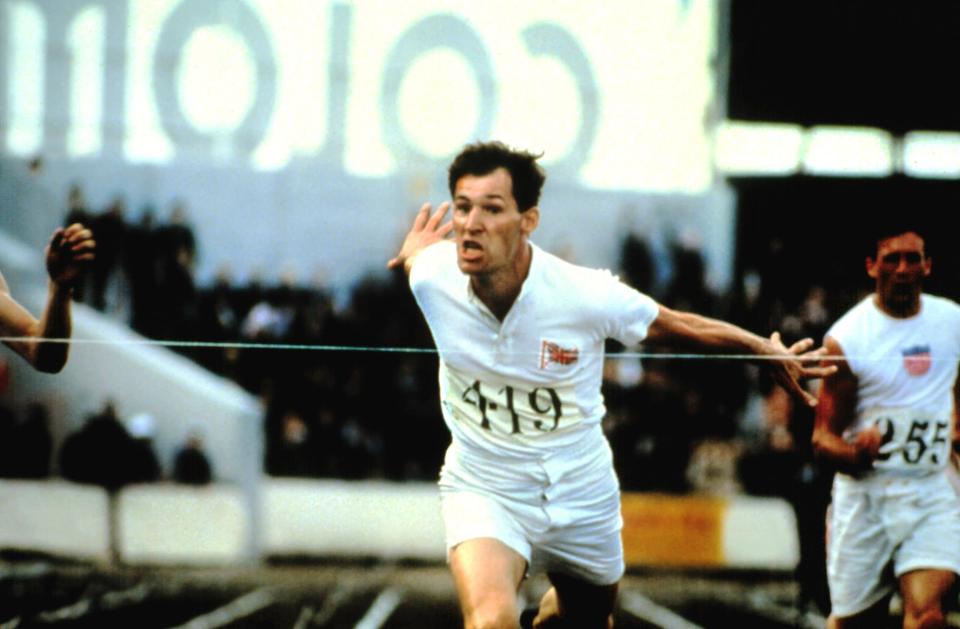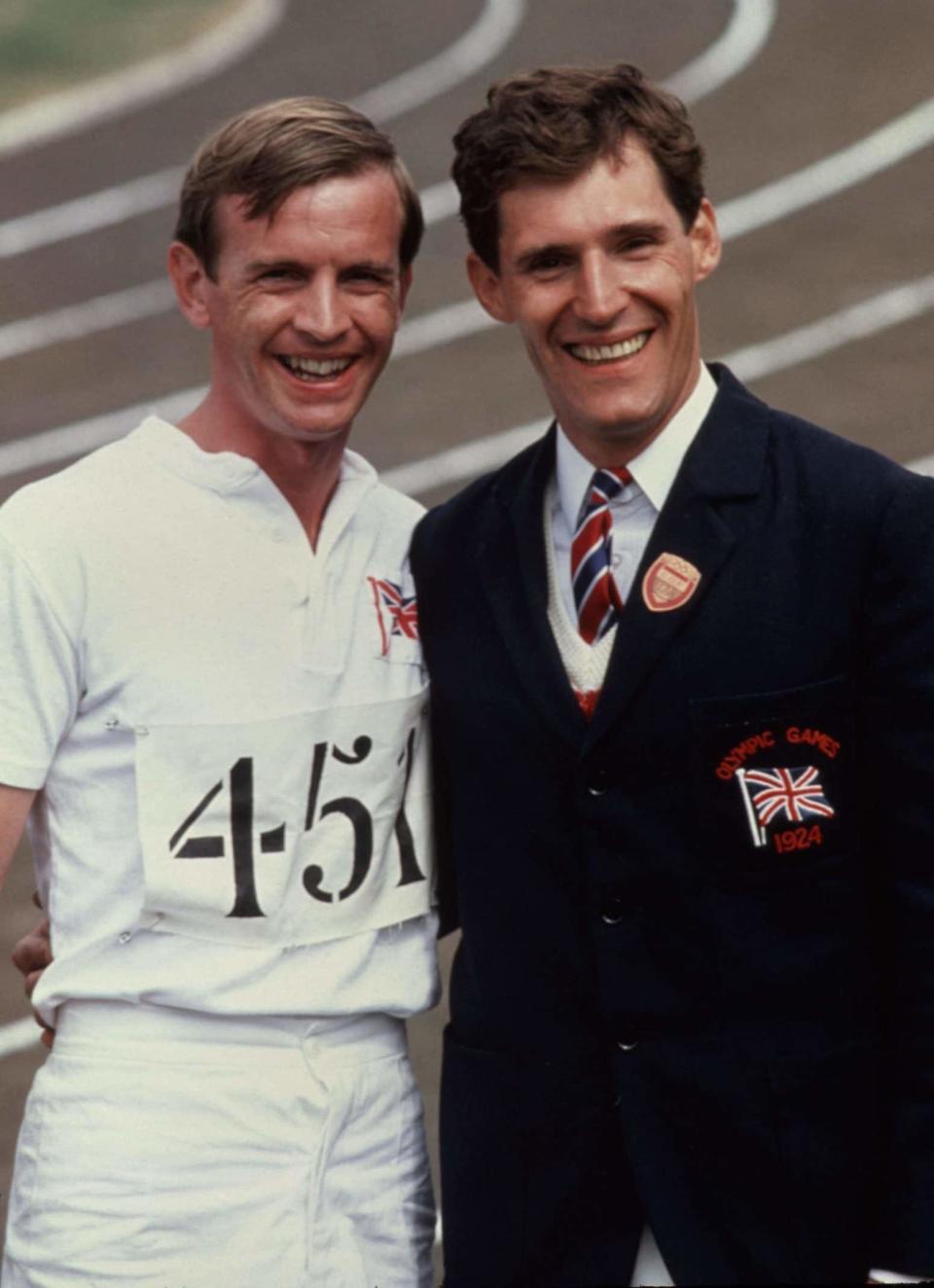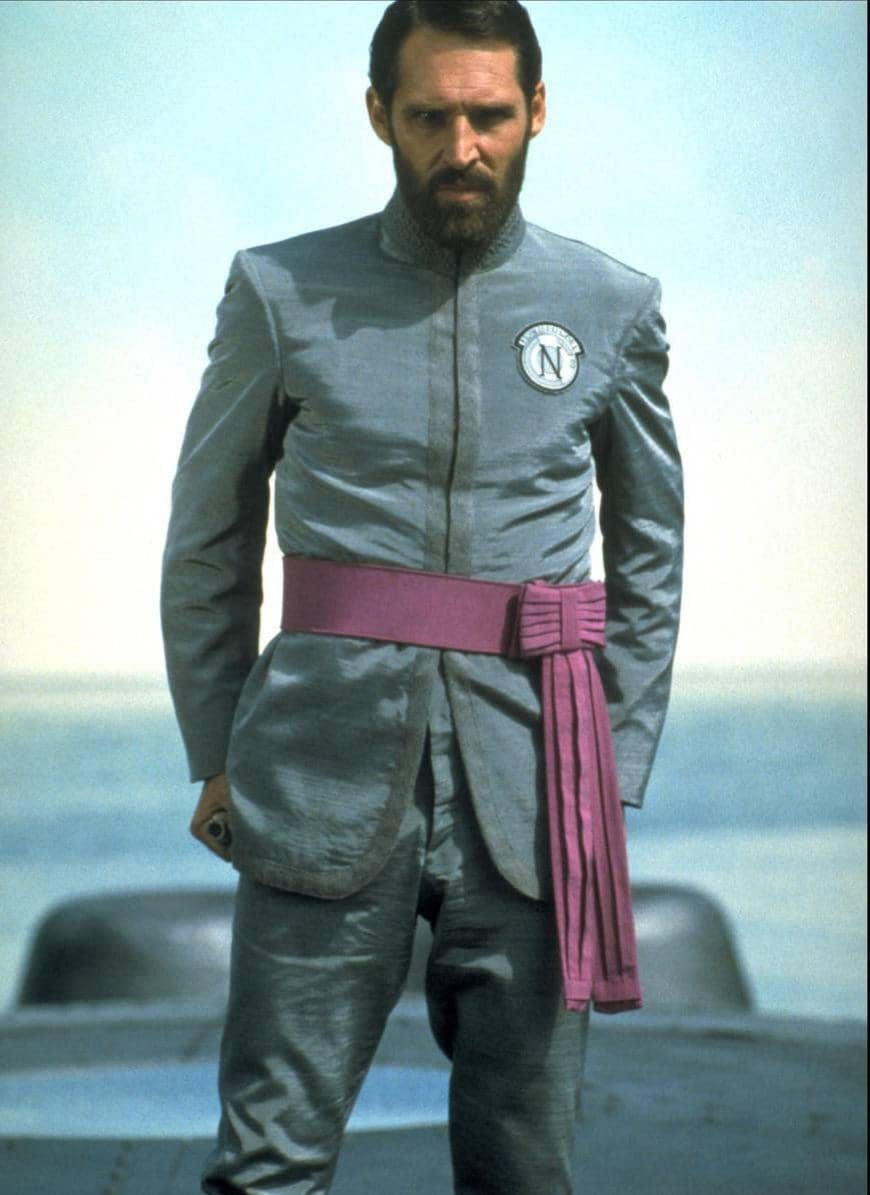Ben Cross, established stage actor who was best known for the film Chariots of Fire – obituary

Ben Cross, who has died aged 72, played Harold Abrahams in Chariots of Fire, the 1981 film depicting two British athletes, one Jewish, the other Scottish, preparing for the 1924 Olympic Games in Paris.
Directed by Hugh Hudson and produced by David (now Lord) Puttnam, Chariots won four Oscars including best film, prompting its writer Colin Welland to declare “The British are coming” as he accepted his Academy Award for best screenplay.
Although Cross was established in the theatre, until then he was not well known on screen. He was just finishing a run in the West End musical Chicago when the invitation came to audition for the role of Abrahams, who until 1980 was the only Briton to win gold in the Olympic 100 metres.

Cross’s usual test for reading a script was to lie in bed and see when he fell asleep. Chariots was different. “I read it all the way through and ended up crying my eyes out,” he told the Jewish Chronicle.
Determined to get the part, he began training immediately. Arriving on set six months later he was in good shape to challenge Ian Charleson’s Eric Liddell, a devout Christian for whom running was an expression of his love for God.
Although Cross’s character is coached by another outsider, Sam Mussabini (played by Ian Holm), in reality Cross and Charleson were trained by the Olympic bobsleigh coach Tom McNab.
By the time of filming, Cross claimed to be only a second slower than Abrahams had been. In one pre-Olympic scene Liddell beats Abrahams over 100m. “Actually, [Charleson] was naturally a bit faster than me, though I don’t think he was any fitter,” Cross recalled.
Filming took place around the country, including on the west sands at St Andrews, where the opening scene was shot, of athletes running through the sea to the strains of Vangelis’s stirring music.
“It was bloody cold,” Cross said. “And we had bare feet – completely ridiculous.” They trundled between locations including Liverpool and London “like a rock group on the road”.
The physical demands were not easy. In one scene Cross had to run alongside a car and overtake it. In another he had to pull off the long jump, a sport in which Abrahams was also a champion.
Once, he vomited in the grass while filming; fortunately nobody noticed. Afterwards he could not look at a running shoe without feeling nauseated, and he would joke that his only running was from the tax man.
Chariots of Fire, which also featured Nigel Havers and John Gielgud, was about more than a race or even the Olympics, it was about outsiders at the heart of society. Cross noted how Abrahams became one of the few chairmen of the Amateur Athletic Association not to receive a knighthood.
He also observed immigrant taxi drivers in America loving the film: “That’s when I started to analyse what Chariots of Fire was about and realised that it was about minorities going against the flow.”

As well as the physical training, Cross investigated Abrahams’s faith, speaking to rabbis and reading about anti-Semitism. He concluded that Abrahams was motivated by a combination of prejudice and paranoia. “I played Harold as a man whose pilot light was always lit,” he said, though this also reflected the actor’s own personality. “There was this quiet defensive anger and occasionally the boiler would light up.”
Unlike Abrahams, Cross was not Jewish, although many assumed he was; like Abrahams, Cross himself often felt an outsider in his country of birth and his profession of choice.
He was born Harry Bernard Cross into a working-class Irish-Catholic family at Tulse Hill, South London, on December 16 1947. His father, Michael, a doorman and nurse, died when he was eight; his mother Catherine (née O’Donovan) was a cleaner.
He left Bishop Thomas Grant School in Streatham with one O-level and became a window cleaner. Among his clients was a local theatre, which one day asked if he could help with the quick change-over of sets during the Joss Ackland musical Jorrocks. “And that was how I got into theatre,” he recalled.

By 21 he was a master carpenter for Welsh National Opera, graduating to stage manager for the Alexander Theatre, Birmingham. That later brought the quick-tempered Cross difficulties when treading the boards. “If you start as a stagehand you get used to shooting your mouth off and saying exactly what you think,” he said. “Actors don’t seem to be allowed that luxury.”
In 1970 he was accepted into the Royal Academy of Dramatic Art, which led to repertory theatre work and then to Toby Robertson’s Prospect company, with roles in Pericles and The Royal Hunt of the Sun.
On their tour to Leningrad (when some Prospect actors received rough treatment from the Soviets) he campaigned to free Valery and Galina Panov, prominent Jewish dancers at the Kirov Ballet who had been denied permission to leave the country, in a cause célèbre of the time.
“I managed to get reels of tape and film back to England to the Free the Panovs committee, but there were brawls with KGB men in hotel lobbies and constant threats that the tour would be ended and we’d all be either expelled or arrested if we didn’t behave ourselves,” Cross told The Times. “Some of the company opted for a quiet life as ‘just actors’, but I couldn’t see a way of remaining uninvolved.”
Back home he joined the Royal Shakespeare Company, taking part in the premiere of Privates on Parade and understudying Alan Howard in Wild Oats. As an understudy he lamented that Howard was “strong as an ox and never missed a performance”.
After a year in I Love My Wife with Richard Beckinsale he was then in Chicago playing Billy Flynn, the slick lawyer representing the murder suspect Roxie Hart. His first significant film appearance was as Trooper Binns, “a glorified extra”, in Richard Attenborough’s Second World War epic A Bridge Too Far (1977) starring Sean Connery and Michael Caine.

On the night when Chariots of Fire received its royal premiere at the Odeon, Leicester Square, Cross was appearing in the musical I’m Getting My Act Together and Taking it on the Road at the Apollo Theatre. Curtain-up had to be delayed to accommodate his presentation to the royal party.
There were many more screen roles, notably Captain Nemo in the television film 20,000 Leagues Under the Sea (1997), Rudolf Hess in Nuremberg: Nazis on Trial (2006) and Sarek in Star Trek (2009), as well as stage appearances.

At times Cross resented being indelibly associated with Chariots and would light a cigarette when asked about it. “I am a smoker, and until people stop identifying me with Chariots of Fire, I will continue to smoke,” he said.
Eventually he made his peace with the film and in 2012, when Chariots was re-released for the London Olympics, he was happy to discuss it once more. He also directed, composed music and wrote screenplays.
Ben Cross married Penny Butler, a model and former Miss London, in 1977. His second marriage, in 1996, was to Michele Moerth. Both were dissolved and in 2018 he married Deyana Boneva, a Bulgarian artist, in front of thousands of spectators during a folk festival in her homeland. She survives him with a son and a daughter from his first marriage.
Ben Cross, born December 16 1947, died August 18 2020

 Yahoo News
Yahoo News 
